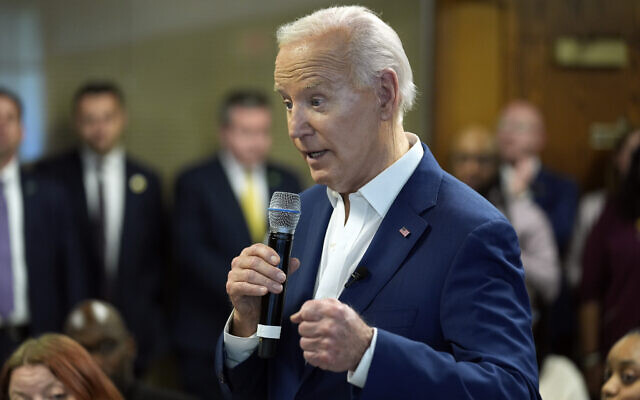From wooden shack to global media magnate: The rise and fall of Robert Maxwell
His death 30 years ago remains a mystery, but a new book by British author John Preston lifts the lid on the extraordinary life of the British newspaper publisher
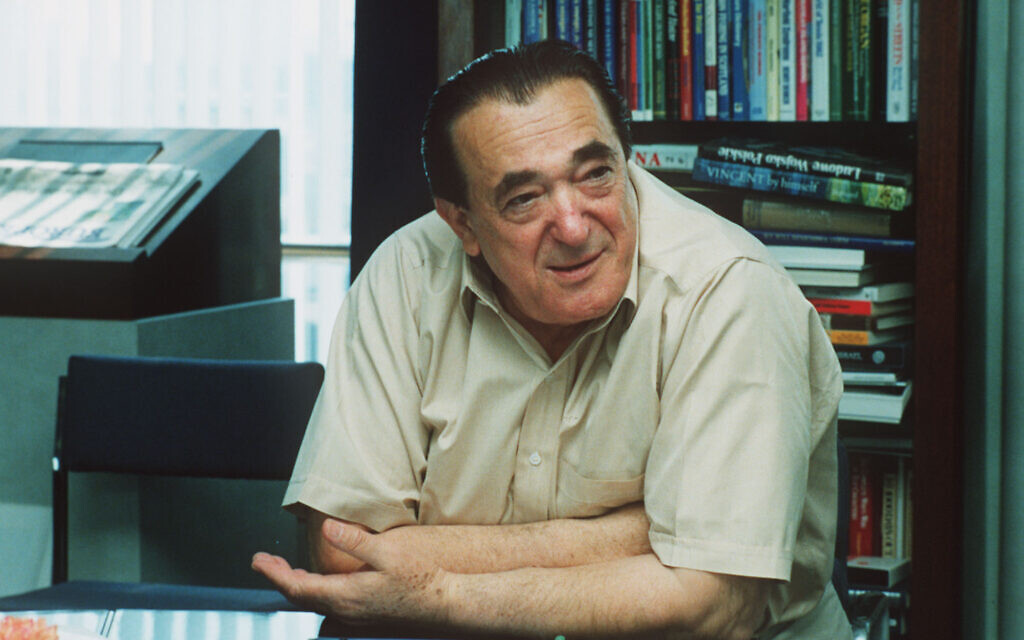 An undated photo of British newspaper magnate Robert Maxwell. (AP Photo)
An undated photo of British newspaper magnate Robert Maxwell. (AP Photo)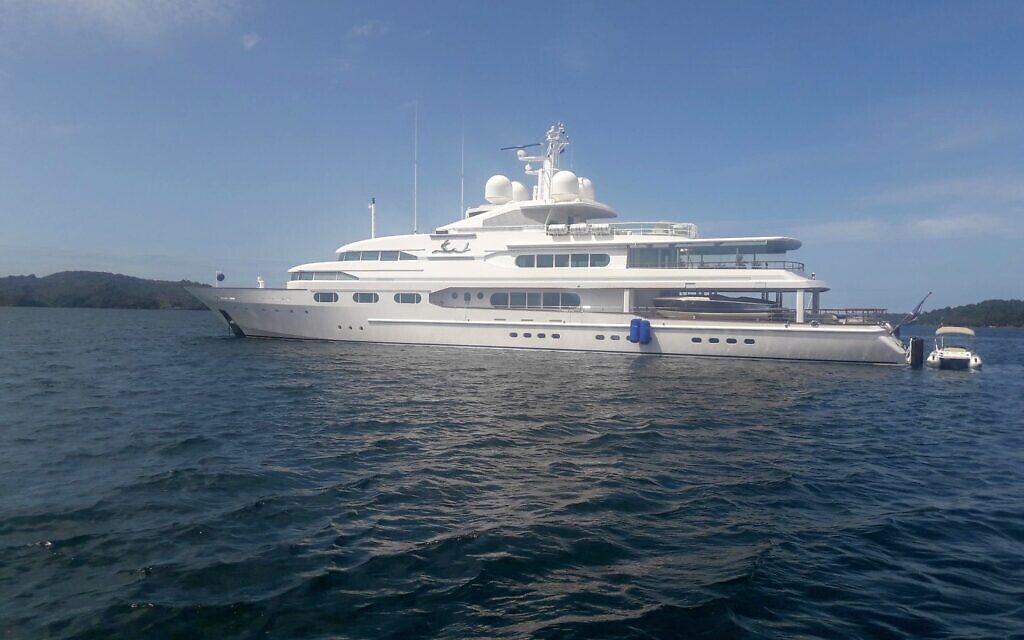 The Dancing Hare, previously known as the Lady Ghislaine, in January 2020. (Wikimedia commons/ CC-BY-SA-4.0/ Andrewrutherford)
The Dancing Hare, previously known as the Lady Ghislaine, in January 2020. (Wikimedia commons/ CC-BY-SA-4.0/ Andrewrutherford)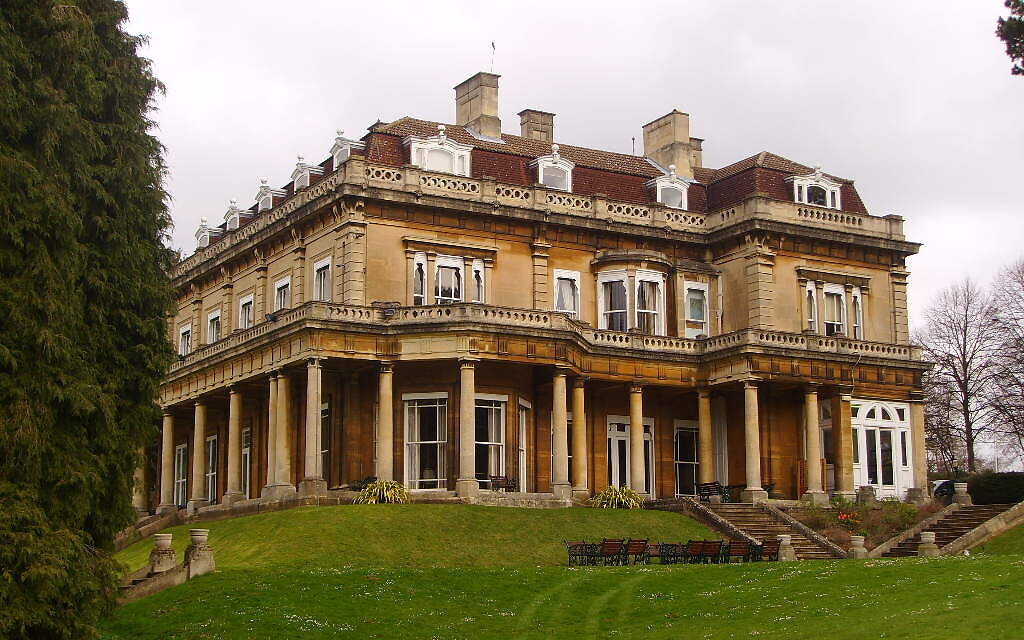 A view of Headington Hill Hall. (Wikimedia Commons/ CC-BY-1.0/Donegalscott)
A view of Headington Hill Hall. (Wikimedia Commons/ CC-BY-1.0/Donegalscott)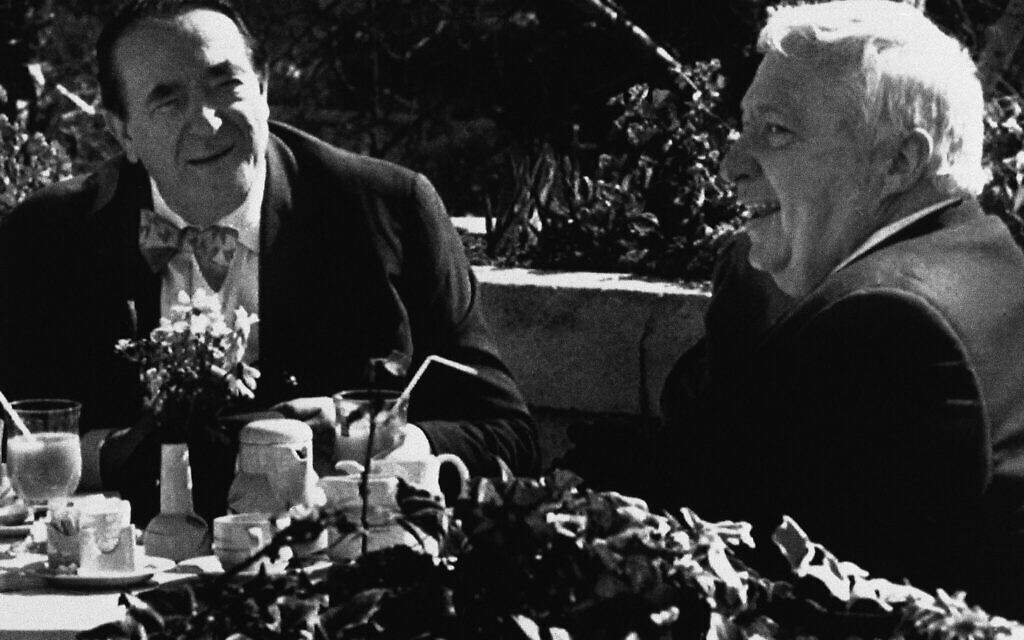 Immediately after resigning as Industry Minister, then-MK Ariel Sharon (right), meets with British millionaire Robert Maxwell (left) in Jerusalem on February 20, 1990. (AP Photo)
Immediately after resigning as Industry Minister, then-MK Ariel Sharon (right), meets with British millionaire Robert Maxwell (left) in Jerusalem on February 20, 1990. (AP Photo) Elizabeth Maxwell leaves the Lady Ghislane on her way to the airport to transfer the remains of her late husband Robext Maxwell to Israel on November 7, 1991 in Santa Cruz de Tenerife. Behind in glasses is her son Philip. (Dominique Mollard)
Elizabeth Maxwell leaves the Lady Ghislane on her way to the airport to transfer the remains of her late husband Robext Maxwell to Israel on November 7, 1991 in Santa Cruz de Tenerife. Behind in glasses is her son Philip. (Dominique Mollard)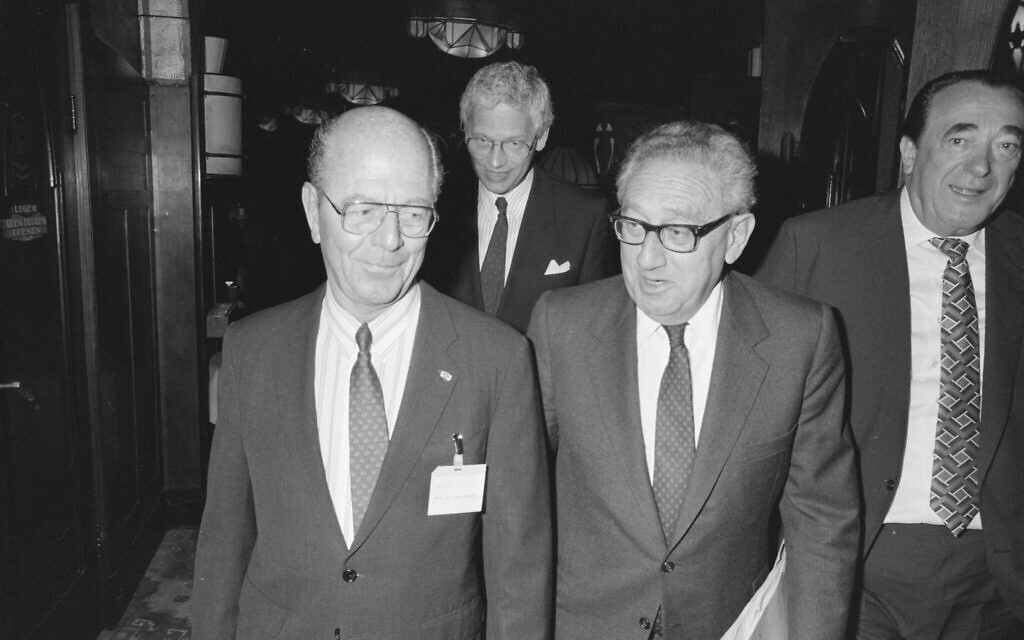 Robert Maxwell, right, walks with Henry Kissinger, center, and Dutch officials at the global economic forum in Amsterdam, April 11, 1989. (Public domain)
Robert Maxwell, right, walks with Henry Kissinger, center, and Dutch officials at the global economic forum in Amsterdam, April 11, 1989. (Public domain) The body of Robert Maxwell is interred at the Jerusalem Jewish Mount of Olives cemetery on November 10, 1991. (AP Photo/Michel Euler)
The body of Robert Maxwell is interred at the Jerusalem Jewish Mount of Olives cemetery on November 10, 1991. (AP Photo/Michel Euler)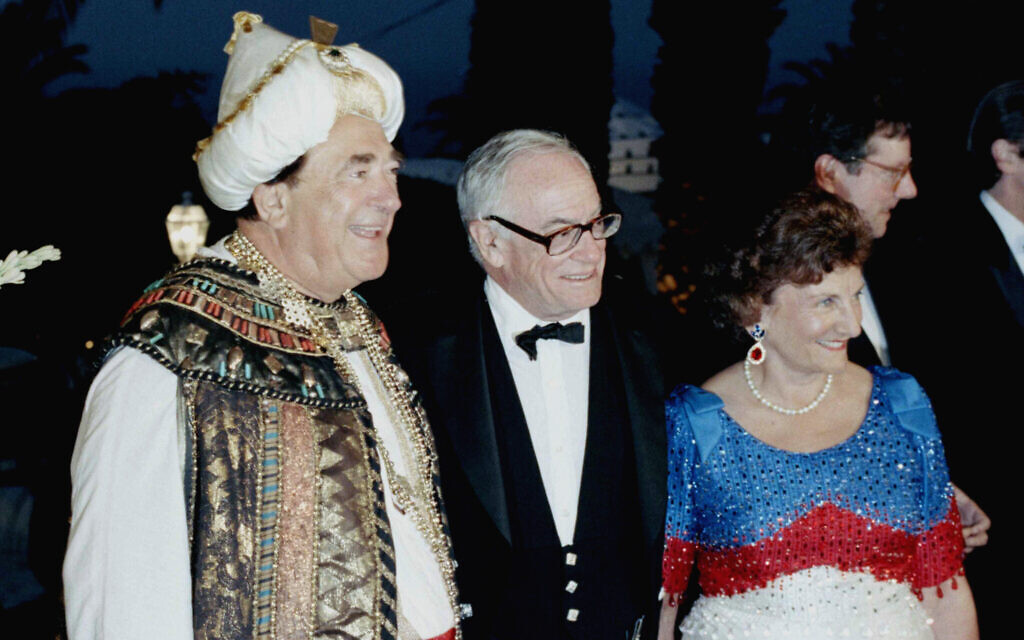 Newspaper magnate, Robert Maxwell, dressed in traditional Moroccan costume and his wife with Malcolm Forbes at his Mendoub Palace in Tangiers, Morocco, Saturday, August 20, 1989. (AP Photo)
Newspaper magnate, Robert Maxwell, dressed in traditional Moroccan costume and his wife with Malcolm Forbes at his Mendoub Palace in Tangiers, Morocco, Saturday, August 20, 1989. (AP Photo)
LONDON — When Robert Maxwell’s four-story-high yacht sailed into New York in early March 1991, he was seemingly at the zenith of his power and influence. With an estimated wealth of $1-2 billion, the British publisher was in the city to complete the purchase of America’s oldest tabloid, the New York Daily News, and thus realize his dream of matching arch-rival Rupert Murdoch in the global media stakes.
Over the coming days and weeks, the self-styled “Bob the Max” relished his moment of triumph to the full: entertaining New York’s glitterati aboard the Lady Ghislaine, schmoozing with the Washington elite at the annual Gridiron dinner and standing beside Gen. Colin Powell at a ticker-tape parade welcoming home American troops following their victory in the Gulf War.
Within months, however, Maxwell had fallen from the deck of his yacht in mysterious circumstances. His media empire swiftly collapsed beneath the weight of crippling debts; his reputation forever blackened by the revelation that in a desperate effort to keep the bankers at bay, he had looted millions from his companies’ pension funds.
The story of Maxwell’s rise and crash — the subject of “Fall: The Mystery of Robert Maxwell,” a brilliantly told and compelling new book by British author John Preston — is akin to a Shakespearean tragedy.
“It’s very hard to think of anyone in the 20th century who journeyed as far from his roots as Maxwell,” Preston tells The Times of Israel in an interview. Those roots were in the small town of Solotvino in the province of Ruthenia (then part of Czechoslovakia), where in June 1923 Maxwell became the first of Mehel and Chanca Hoch’s nine children. Anti-Semitism was rife and the family lived in grinding poverty. Home was a two-room wooden shack with earthen floors and a pit latrine at the back; in the winter, two children would share one pair of shoes.

Lies, half-truths and exaggeration
Jan Hoch, as he was then known, was studying at a yeshiva in Bratislava when the Nazis invaded Czechoslovakia in March 1939 and handed Ruthenia to their Hungarian allies. Hoch cut off his sidelocks — a symbolic breach with Judaism which would not be healed for more than four decades — and left Solotvino three months later. He never saw his mother, father, grandfather, three of his sisters or younger brother again. All but one sibling perished at Auschwitz. His escape and their fate, Preston believes, haunted Maxwell for the rest of his life.
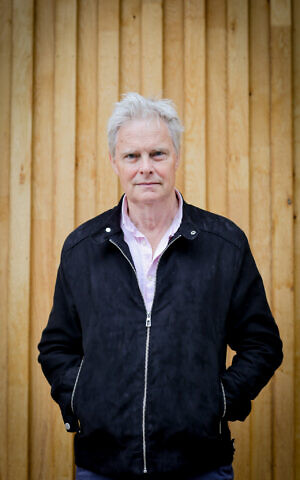
Much of Maxwell’s early life is clouded in mystery. The broadcaster Michael Parkinson remarked nearly half a century later that it “supports the theory that often truth is more exotic than fiction.”
In reality, as author Preston details, this supposed exoticism owed much to Maxwell’s penchant for lies, half-truths and exaggeration. After he left Solotvino, for instance, the teenager joined the anti-Nazi resistance but was captured, accused of spying and sentenced to death. Maxwell later claimed that he had managed to escape “relatively easily” after overpowering a one-armed guard while being transported to a court appearance. Hiding under a bridge, he recounted on one later retelling, he was aided by “a gypsy lady” who freed him of his handcuffs.
“Intriguing though this story is,” writes Preston, “it does beg a number of questions. However stretched the Hungarian prison service may have been at the time, it seems odd that they couldn’t rustle up a single two-armed guard.” The mysterious “gypsy lady” was also absent from Maxwell’s earlier accounts. “Why hadn’t he thought her worth mentioning before? Had she simply slipped his mind,” the author asks. Or, he wonders, had she “crept onstage… from some colorful corner of Maxwell’s imagination?”
“Maxwell created his own myths,” Preston says, “and one of the reasons, he created his own myths was a kind of smokescreen to hide behind.”

This doesn’t, however, detract from Maxwell’s genuine wartime heroism. After escaping his “one-armed guard,” he managed to reach Britain via Belgrade, Beirut and Marseille. Three weeks after D-Day, he set sail for France and, after his first experience of battle, was promoted to an officer.
Maxwell — who by now had adopted an affected English accent perfected by listening to Winston Churchill’s speeches and went by the archetypally British name of Lance-Corporal Leslie Smith — was later awarded the Military Cross for rescuing a trapped Allied platoon. Bravery was mixed with cruelty: on one occasion, he cold-bloodedly shot dead the mayor of a German town to snuff out any resistance; on another, he turned his submachine gun on some German troops who had already surrendered.
Nonetheless, what Preston terms Maxwell’s “natural flair for subterfuge” — by the age of 23, he had changed his name four times — was clearly appreciated by his superiors. Fluent in French, German, English, Czech, Romanian and Yiddish, he was dispatched to Paris in October 1944 to gather intelligence on a feared communist uprising. As the war ended, he was sent to Germany and, in the ruins of Berlin, carried out espionage work for British intelligence. He also began to undertake undercover trips to Czechoslovakia which would continue throughout the 1940s and 1950s.
Constructing a media empire
Berlin and his relationship with the British secret service were to later prove the twin foundations upon which Maxwell constructed his media empire. Through his work for the occupying British forces, Maxwell met Ferdinand Springer, owner of the Springer-Verlag publishing house. The company, which had been the world’s largest publisher of scientific books and journals, had a huge backlog of material and an eager audience of international academics who had not been able to get their hands on it throughout the war.
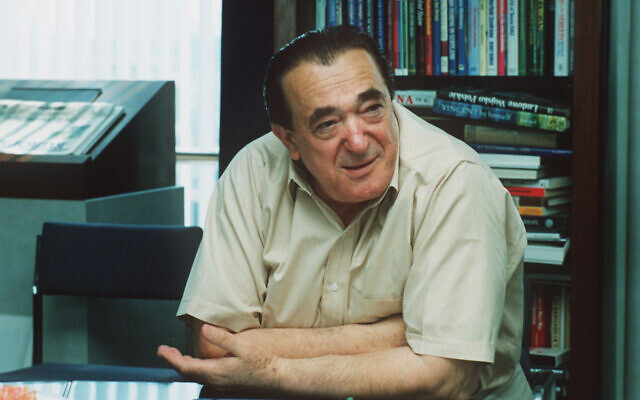
Springer’s problem — that German nationals were barred from making large shipments overseas — was Maxwell’s opportunity. Having secured worldwide distribution rights for the huge cache, the 24-year-old arranged for it to be transported to London by rail and fleets of lorries. The cash for this massive logistical operation appears to have come in a large part from the British secret service — the only case, one former intelligence officer recalled after Maxwell’s death, of MI6 buying a business for anyone. This would not be the last occasion on which Maxwell’s connections to the intelligence services proved both useful and profitable.
Throughout the 1950s, Maxwell’s network of businesses and its flagship, Pergamon Press, prospered and grew.
“In many respects, Maxwell was a brilliant businessman,” says Preston. “He became the world’s largest, most successful publisher of scientific journals in the ’50s, and that didn’t happen by accident.”
But what Preston terms Maxwell’s propensity to fight “low and dirty” was also already evident. In 1955, for instance, it was revealed that he had been asset-stripping one of his main businesses — shifting around loans he’d borrowed on its behalf to bolster other parts of his fledgling empire — leading angry creditors to contact the Insolvency Service of the United Kingdom. The seed was planted for Maxwell’s lifelong fear and hatred of the British establishment and sense that it was out to get him.
A political dud
Nonetheless, by 1960 Maxwell was living in Headington Hill Hall, an Italianate mansion just outside of Oxford, and his wife, Betty, a French Protestant who Maxwell married in 1945, would also soon give birth to their ninth and youngest child, Ghislaine. Maxwell was also preparing to launch a political career, grandly declaring to friends: “I’ve decided to become prime minister.”

But, as the events of 1991 would show, for Maxwell triumph and disaster were never far apart.
Maxwell’s parliamentary career — he was elected Labour MP for the marginal seat of Buckingham in 1964 — proved short-lived and hardly illustrious. The clubby and tradition-bound world of Westminster proved an uncomfortable fit for a self-promoting, flamboyant loner such as Maxwell, while the media ridiculed his parliamentary performances. Reelected in the Labour landslide of 1966, Maxwell lost his seat four years later and failed in his efforts to regain it in 1974.
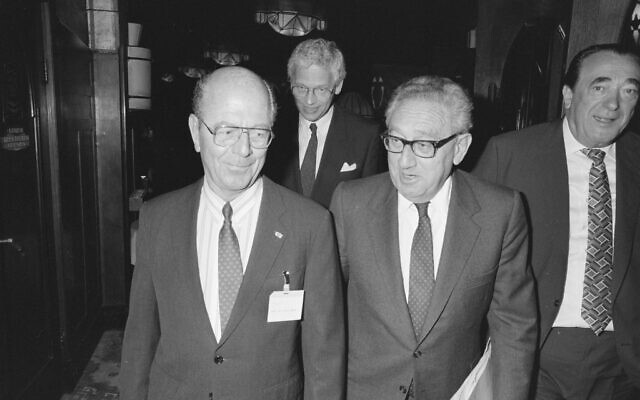
Tragedy strikes again, and again
More devastating for Maxwell, though, were twin tragedies closer to home. In 1957, the Maxwells lost their three-year-old daughter to leukemia. Four years later, their eldest son, Michael, was severely injured in a car crash; he remained in a coma before dying in early 1968. The accident, which Preston describes as “a terrible black cloud hanging over the family that never [went] away,” left Maxwell emotionally detached from his wife and surviving children. “Mummy, I exist,” Ghislaine was finally forced to declare to her mother at the age of three.

While Maxwell himself began to indulge and spoil his daughter, marking her out as the clear favorite, his wife and other children increasingly felt the brunt of his volcanic temper, cutting disdain and disapproval.
Maxwell was to suffer a further blow in October 1969 when he found himself unceremoniously dumped from the board of Pergamon Press after a lucrative deal with Saul Steinberg, America’s youngest self-made multimillionaire, went horribly wrong. Maxwell had nobody to blame but himself: Steinberg had discovered that his new business partner had been falsely inflating his profits by engaging in various smoke and mirror accounting practices.
“Once again,” writes Preston, “he was using one part of his empire to prop up another.”
Nor would it be the last time. Eighteen months later, a government report into the debacle declared that Maxwell was not “a person who can be relied on to exercise proper stewardship of a publicly quoted company.” Maxwell’s retort — that he was the victim of a “witch hunt” perpetrated by the “so-called City establishment” — convinced few.

Maxwell was down, but not out. Less than five years after he had been ousted, Maxwell had managed to regain control of Pergamon.
“He clawed his way back astonishingly quickly,” says Preston. But his comeback was hastened by trickery: Steinberg had failed to notice in the original 1969 deal that Maxwell had kept control of Pergamon’s highly profitable American subsidiary. “The Bouncing Czech,” as the press nicknamed him, then proceeded to effectively starve the parent company of cash, eventually forcing Steinberg into a humiliating and costly retreat.
No Murdoch
A decade later, Maxwell, by now the owner of a soccer club and the largest printing company in Europe, finally achieved the goal which had eluded him for the past 15 years: the purchase of a national newspaper. It wasn’t for lack of trying — in 1968, he had tried to buy the News of the World, Britain’s biggest selling Sunday newspaper; in 1969 The Sun; and in 1981 The Times. On each occasion, however, he had been bested by Murdoch.
The battle for the News of the World was particularly ugly: its editorial column declared that “it would not be a good thing for Mr. Maxwell, formerly Jan Ludwig Hoch, to gain control of this newspaper… This is a British newspaper run by British people. Let’s keep it that way.” As Murdoch, who Preston interviewed for the book, recalled: “I could smell that the establishment would not let him in.”

Preston agrees that, more widely, Maxwell’s sense of being disdained and blocked by the establishment wasn’t “purely paranoia.”
“There was a lot of anti-Semitism [and] although he denied being Jewish, everyone knew he was,” Preston says. “He was an outsider and [seen as] an uppity arriviste and they really didn’t like it.”
Maxwell’s purchase in 1984 of the Daily Mirror — whose circulation at the time was second only to The Sun — set the stage for the titanic struggle with Murdoch that increasingly obsessed him.
“There was a time when it was if the only two people in the world breathing the same air were my father and Murdoch,” Maxwell’s son, Ian, told Preston.
Maxwell’s stewardship of the paper — he interfered in every aspect of its production and ensured that his picture appeared in its pages over 100 times in the first six months after his takeover — was disastrous: While he drove down costs and increased profits, the Mirror and its two stablemates hemorrhaged readers at the fastest rate in its history.

Maxwell with an ‘M’
At the same time, Maxwell’s wealth, power and megalomania continued to grow. His grand apartment next to the Mirror building, which he christened Maxwell House and whose carpets were adorned with the letter “M,” was one of only three places in London with a private helipad.
“It’s very easy to see Maxwell as a forerunner of [former US president Donald] Trump, in a way, in terms of that kind of crazed self-aggrandizement,” says Preston. Maxwell’s 65th birthday party in 1988 — labeled “the party of the decade,” by the managing director of the Rothschild’s Bank — saw 3,000 guests, congratulatory telegrams from Ronald Reagan and Margaret Thatcher, and a firework display in which the words “Happy Birthday Bob” lit up the Oxford skyline.

Unsurprisingly, Maxwell had now become, writes Preston, “a figure of fascination, regarded with a constantly shifting mix of awe, fear and derision.”
“What an extraordinary man. What’s he like to work for? Where does he get all his money from?” Prince Charles asked the Mirror’s then-editor. Maxwell was, in fact, grim to work for: He bullied and humiliated staff relentlessly, calling his ludicrously titled “Chief of Staff” at 4 a.m. one Saturday morning to ask him the time, and instilled a culture of distrust and rivalry. He bugged his staff, spending hours alone listening to the recordings for evidence of disloyalty, and even had them followed.
“Thank Christ, I’m finally out of the madhouse,” Ian Maxwell recalled thinking after his father had fired him on one occasion for some minor failing. Three months later, Maxwell rehired his son — on half his previous salary.
Rediscovered roots
But growing wealth and success did not appear to sate Maxwell’s enormous appetites. One source of unhappiness was the guilt he felt at having denied his Judaism for 40 years.
“How come all of a sudden you’re not Jewish anymore,” the straight-talking businessman Gerald Ronson, a friend of the tycoon, asked him in 1984. Shortly afterward, he invited Maxwell and Betty to accompany him on a visit to Israel. As Ronson’s private jet approached Tel Aviv, he glanced across at Maxwell and saw tears streaming down his face. “I should have come here years ago,” he kept repeating.
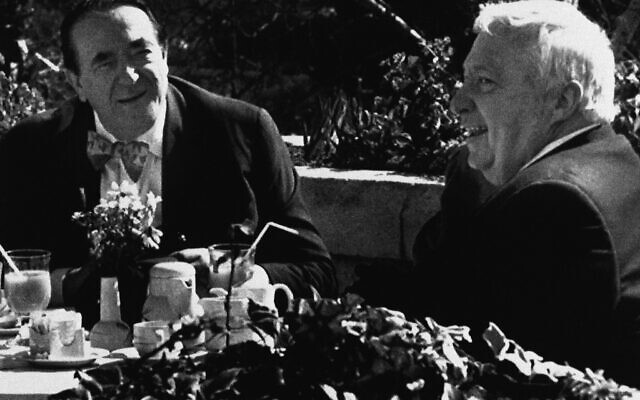
Maxwell’s newfound enthusiasm for Israel appeared to have grown to such an extent that, at a meeting with then-prime minister Yitzhak Shamir the next day, he declared his desire to invest “at least a quarter of a billion dollars” in the Jewish state. It was, Preston notes, a pledge which, unusually for Maxwell, he chose to honor.
Over the next four years, thanks to his Mirror Group profits, Maxwell pumped millions into the country, buying newspapers, investing in hi-tech and pharma companies, and, in the process, becoming the largest single investor in Israel’s economy. Maxwell also began to pass on useful information to the Mossad. For Betty, the visit proved pivotal, too, sparking an interest in the Shoah that would eventually lead to her becoming a respected Holocaust scholar.
“Israel gave him a kind of sense of emotional homecoming that he hadn’t got from anywhere else,” says Preston. But while, he says, Maxwell’s return to Judaism was “enormously important,” the millionaire was increasingly haunted by the past and racked by guilt as to the fate of his family.

“He was convinced that had he stayed at home,” wrote Betty in her memoirs, “he could have saved the life of his parents and younger siblings. Nothing he achieved in life would ever compensate for what he had not been able to accomplish — the rescue of his family.”
Towards the end of Maxwell’s life, Ian walked into his father’s bedroom to find him bent over, closely watching documentary newsreel footage of Jews arriving at Auschwitz. Asked what he was doing, Maxwell responded: “I’m looking to see if I can spot my parents.” It is, says Preston, “a desperately poignant story.”
“You have this sense the older he gets, of the past nipping at his heels and mocking him for what he achieved,” he says.
Financial ruin
If the past was catching up with Maxwell, so, too, were the bankers and auditors. The road to his financial downfall began in 1988 when he bought the US publisher Macmillan for $2.6 billion — roughly $1 billion more than even the company’s own directors thought it was worth. To fund the purchases, Maxwell borrowed from 44 different banks and financial syndicates. The New York Daily News, which Maxwell hoped would further raise his profile in the US, proved a similarly ill-advised acquisition. Such was its parlous financial state, that its owners paid Maxwell $60 million to be rid of it.
There appears little mystery as to what was driving the media magnate’s seemingly insane spending. “He desperately wanted to prove that he belonged in the same arena as Murdoch and that he was an equally heavy hitter,” says Preston. “But then it developed this kind of terrible momentum of its own.”

Maxwell wanted to both beat Murdoch and earn his respect. He succeeded in neither. “Maxwell thought he had entered the ring with another boxer, but he hadn’t. In fact, he’d entered the ring with a ju-jitsu artist who also happened to be carrying a stiletto,” observed Harry Evans, a former editor of Murdoch’s Times newspaper. Murdoch told Preston he regarded Maxwell as nothing more than a “crook” and a “total buffoon.”

The price — for Maxwell, his family, and, most of all, his employees — was ultimately a terrible one. As the 1980s’ economic bubble burst and interest rates jumped, Maxwell desperately juggled millions to keep his debt-laden empire afloat and support its sinking share price. Assets were flogged — including, in March 1991, his crowning jewel itself, Pergamon Press — and he dipped further and further into his companies’ pension funds.
As his debts surpassed $1 billion in the autumn of 1991 and the banks pressed for their money back, Maxwell was physically and psychologically close to collapse. Suffering from insomnia, depression and in poor health, he spent his nights gambling in London casinos or shut himself away and binged on Chinese takeout while watching James Bond films.
“The stress of it, even for a big gambler like Maxwell, must have been immense,” says Preston. “The fear of losing face would have been very acute and, of course, by this stage, he’s got no one to talk to. He’s pushed all his family away and he’s not really on speaking terms with his wife. He’s a very lonely man.”
The final plunge
By the time he set sail on the Lady Ghislaine on November 1, 1991, Maxwell knew his theft and deceit were close to discovery. Meetings with the Mirror’s audit committee — at which the gaping hole in the pension fund was on the agenda — and with the Governor of the Bank of England — who was sure to probe his companies’ solvency — were scheduled for five days later. Meanwhile, the City of London police were waiting in the wings after Swiss Bank, which was threatening to go public, alerted them to “suspected breaches of the law.”
And then, for a moment, the disaster hurtling towards Maxwell halted: Around 5 a.m. on the very day he was due to face the music in London, he fell from the stern of his yacht as it passed Gran Canaria en route to Tenerife. Roughly 12 hours later, Maxwell’s bloated body was discovered by a Spanish National Rescue Service helicopter.

Maxwell was laid to rest five days after his death in a plot he had purchased on the Mount of Olives. It was, Betty later wrote, “a hero’s send-off and what amounted to a state funeral” attended by, among others, Shamir, then-Israeli president Chaim Herzog and Shimon Peres. “Kings and barons besieged his doorstep. He was a figure of almost mythological stature,” the president intoned.
Those myths were, though, swiftly punctured: Within weeks of his death, the truth about his plundering — 763 million British pounds were missing from his companies, including over 400 million pounds from pension funds — and debts were exposed. “The Crook of the Century,” screamed the front cover of “Newsweek” magazine.
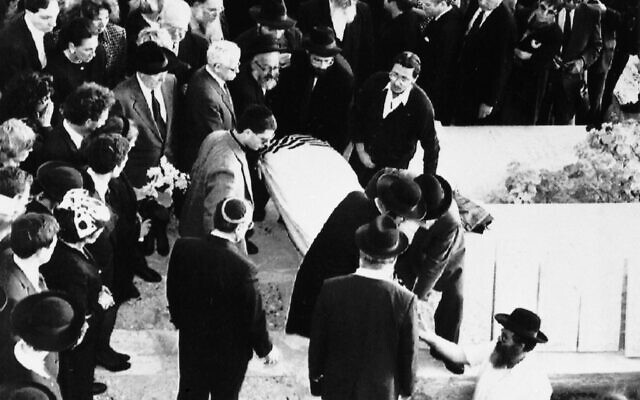
The revelations fueled speculation around the question which had gripped the media from the time Maxwell’s death was announced: Did he fall accidentally, was he pushed, or did he jump? Betty’s first reaction was clear. “He would never kill himself,” she declared as she flew out to Gran Canaria. Thirty years on, Murdoch remains convinced that he did. “He knew the banks were closing in, he knew what he’d done and he jumped,” he says.
While dismissing the idea that Maxwell was murdered — predictably, the finger of blame has most often been pointed at Mossad — Preston suggests the evidence is inconclusive as to whether he slipped and fell or jumped. One thing is clear, he believes.

“If it was an accident, it was an astonishingly fortuitous accident, given that he knew he was coming back to face the equivalent of three firing squads: the police were after him, the pensioners were after him [and] the bankers were after him,” Preston says.
What is also not in doubt is the financial wasteland Maxwell bequeathed to his family and employees. With debts of 406 million pounds, his son, Kevin, earned the unwelcome epithet of the biggest bankrupt in history (he and Ian were later cleared of multiple counts of conspiracy to defraud). The contents of his grand apartment and Headington Hill Hall were auctioned off. And most of the “Maxwell pensioners” received just half what they were owed.
Shortly after Maxwell bought the Daily Mirror, its editor discussed the paper’s new owner with a friend who was a psychiatrist. “He’ll end up bringing the whole empire down around him,” he predicted. “He’ll leave nothing… Just ashes.”
Are you relying on The Times of Israel for accurate and timely coverage right now? If so, please join The Times of Israel Community. For as little as $6/month, you will:
- Support our independent journalists who are working around the clock;
- Read ToI with a clear, ads-free experience on our site, apps and emails; and
- Gain access to exclusive content shared only with the ToI Community, including exclusive webinars with our reporters and weekly letters from founding editor David Horovitz.

We’re really pleased that you’ve read X Times of Israel articles in the past month.
That’s why we started the Times of Israel eleven years ago - to provide discerning readers like you with must-read coverage of Israel and the Jewish world.
So now we have a request. Unlike other news outlets, we haven’t put up a paywall. But as the journalism we do is costly, we invite readers for whom The Times of Israel has become important to help support our work by joining The Times of Israel Community.
For as little as $6 a month you can help support our quality journalism while enjoying The Times of Israel AD-FREE, as well as accessing exclusive content available only to Times of Israel Community members.
Thank you,
David Horovitz, Founding Editor of The Times of Israel








